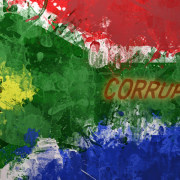|
Getting your Trinity Audio player ready...
|
Image: South African History Online
By Moepeng Valencia Talane – CW Voices
We as South Africans interpret and understand freedom in many ways. For some, it means gaining access to the means they require to make financial emancipation a reality for them and their future generations. For others, it means being able to exist, thrive and express their truth openly without resistance to their race, gender, sexual orientation, or even cultural background.
Several days in the South African calendar give us the chance to reflect on the freedoms that matter to us because of the historical events that arose from the causes we commemorate as a country.
As we prepare to celebrate Women’s Day, one is reminded of the many women who have taken resilient stances against what is wrong in our country, and what these stances cost them. Several come to mind who have stood as lone voices against what seemed like insurmountable pressure to cave in or back off, because the politically and financially powerful stood on the other side of the fence.
They were inspired, despite sometimes undeserved backlash, to raise the alarm against systems that did not have room for their kind. In a country with as many problems as ours, there is no doubt that there will always be a demand for women of fortitude, but hopefully the supply of such women will not diminish.
It helps, then, to remind ourselves of their stories.
The courageous women of ’56
It was 67 years ago this year that 20 000 women of different racial and ethnic backgrounds marched to the Union Buildings to demand that the then government’s pass laws – which were at the time directed at black adult males – not be extended to their female contemporaries.
They were led by, among others, Lillian Ngoyi and Helen Suzman, and their argument was that these laws were degrading and stripped black people of their dignity, freedom of movement, and other freedoms that they should have enjoyed in the country of their birth. To extend them to black women would mean that they too, like black men, would endure unspeakable daily hardships at the whim of a ruthless police force. They would also face constant harassment from the police and other public officials.
The courage of the marching women spoke volumes, considering that they were marching against a government that would most likely not heed their grievances, let alone abolish the laws in question.
But this did not stop them. They believed in the principle of uniting against what is wrong, and speaking in large numbers for the cause of many who could not do it alone, and many more who would inevitably be born into the same degrading, inhumane circumstances, if nothing was done. They failed to have the laws overturned, but their actions would live on to open the eyes and minds of generations to come, and to inspire other women to stand in their womanhood and raise the alarm when things go wrong, even if it angers those who find comfort in those corrupt circumstances.
No lives were lost on 9 August 1956, but as history books tell us, they were lost in the years that followed, and many of the others who stood up against apartheid would be arrested, tortured, maimed for daring to do so. But they did not stop. They fought on for decades to come because they believed in the cause that was an apartheid-free South Africa.
The women of ’56 were not the only inspiration in the very dynamic struggle against apartheid, but their contribution is not left out of the record because they were part of a culture of resilience in a troubled country. A culture that without a doubt has inspired many a whistle-blower to act in the best interests of South Africa, regardless of what may happen to them.
We must continue to mark the event of 9 August not only for it being a public holiday, but for it being a day to remember that women of fortitude lived before us, during a difficult time in our country, and held their own against a corrupt, cruel state.
The lone arms deal whistle-blower
One woman who will also go down in history, has done the same with impeccable patience and resilience. She is Patricia de Lille, the lone whistle-blower in the country’s arms deal, as a member of parliament, in the early 2000s. Her actions would lead to the eventual establishment of a commission of inquiry in 2011 into the multi-billion rand arms procurement project that would forever help shape the country’s political corruption landscape.
De Lille took a lot of political criticism as a result of her actions, and was repeatedly accused of being unpatriotic at a time when many in the country’s national legislature were finding their feet and becoming accustomed to the ways in which Parliament works.
Her actions were, however, exemplary of the standard that should be expected of an elected public representative and member of parliament, as they demonstrated a principled position of holding Parliament accountable in favour of the rule of law as enshrined in South Africa’s supreme law, its Constitution.
Even as De Lille’s subsequent political manoeuvring from party to party would earn her criticism, her stance in the face of adversity in highlighting democratic South Africa’s first political corruption claims will position her as a game changer in the country’s history books. When the odds were against her, and the national legislature became divided over her decision to stand up and raise the alarm on corruption that seemed to have clouded the arms deal in 1999, Patricia de Lille inspired many.
The accountability champion
Among those who will be honoured alongside De Lille is former public protector Thuli Madonsela, if not for anything else, then for her ability to protect the integrity of her office against political opposition to her decisions. Madonsela came under notable political pressure when she pursued an investigation into the source of funding for the security upgrades at the private home of former president Jacob Zuma in Nkandla, KwaZulu-Natal.
Madonsela’s probe into Nkandla and later state capture allegations against Zuma and several other government leaders would earn her labels, like De Lille, such as “a puppet” of white monopoly capital. She would be vindicated, however, when opposition party EFF took the national assembly to the Constitutional Court after it had refused to act on Madonsela’s recommendations. The court ruled that Public Protector recommendations were binding on the authorities charged with implementing them.
But the foundation had been laid for Madonsela’s critics, both in government and in the political environment, who often claimed she was obsessed – as were her “handlers” – with bringing down Zuma.
In an environment where competing factions within the ANC were starting to take noticeable form, Madonsela’s character and authority often came under fierce criticism. But her ability to maintain decorum and professional posture in the face of such negativity earned her, like De Lille, many accolades, and the respect of many South Africans.
For the part that these women, and many others, played in the fight for transparency and accountability in South Africa, they should be celebrated. May their efforts be a reminder of one of Maya Angelou’s most remembered quotes: “Each time a woman stands up for herself, without knowing it possibly, without claiming it, she stands up for all women.”








